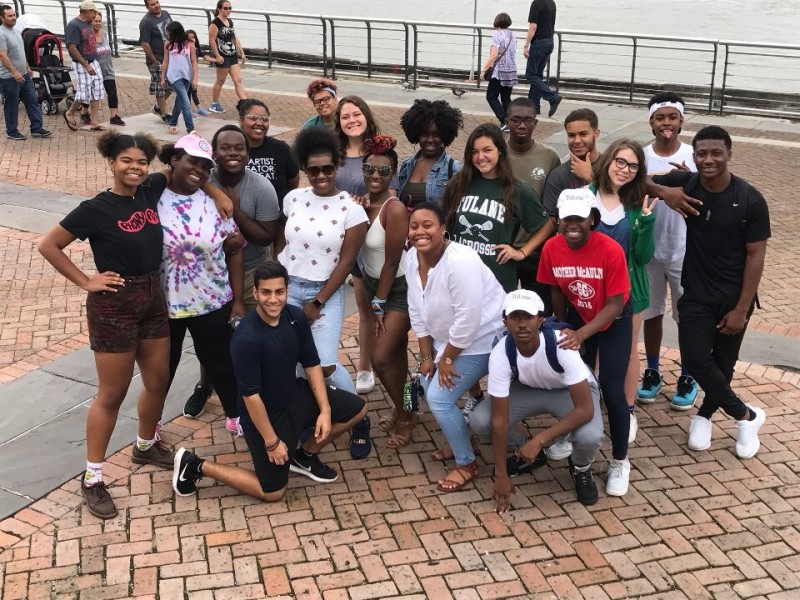Newcomb-Tulane College Summer Experience offers opportunity for first-year students
With the Class of 2021 being the most diverse class in Tulane’s history, the university is working on creating more inclusive programming for its students. This summer the Center for Academic Equity did just that by inviting 16 first-year students of varying marginalized identities to participate in the Newcomb-Tulane College Experience.
The Summer Experience welcomed its largest group of students to date this year. The program included not only College Track students, but also those with LGBTQ+ identities, first generation students and students of color. The program emphasizes the importance for underrepresented students to feel prepared and supported in a higher education environment.
Over the summer the students took two courses, earning them seven credits total. They received credit for these courses and fulfilled their English 1010 requirement. Other academic programs in the Summer Experience include workshops in math and chemistry as well as meetings with faculty and staff.
As a final culmination of their summer, the students will present research projects at the Center for Academic Equity Undergraduate Research and Creative Activity Symposium on Oct. 3.
Though admissions has worked to create a more diverse student body, studies have found that simply admitting students of color is not enough to create an equitable environment or ensure that these students will complete their education.
The Education Trust completed a study of graduation rates among 232 four-year public universities from 2003-2013, specifically looking at the gaps between black and white students. The study found that 53 percent of the universities saw gaps between black and white students either stay the same or increase.
Throughout the nation, many schools recognize this issue and implement programming like the Summer Experience to aid in solving the problem of low retention rates of minority students in higher education.
Many students who participated in the Summer Experience understand the importance and impact the program has on an individual’s educational and social experience firsthand. Participants were able to gain a head start on their tracks to leadership opportunities on campus while forming lasting friendships.
“My experience with the summer program at Tulane was not only beneficial to my academic success but beneficial to me with the relationships I built,” Tulane sophomore and 2016 participant Semhal Abbady said. “… By far the most beneficial part of the program was building those relationships with the other students.”
The Summer Experience Program also worked to help LGBTQ+ students build a community and systems of support at Tulane.
Dr. Ronni Sanlo at the University of California, Los Angeles LGBT Campus Resource Center studied campus culture for LGBTQ+ students in a paper titled “Lesbian, Gay, and Bisexual College Students: Risk, Resiliency, and Retention.” Through this paper Sanlo found that many universities refrain from obtaining data for their LGBTQ+ students.
“Many sexual minority students in higher education tend to be invisible; therefore, their presence and experiences are known only anecdotally,” Sanlo wrote.
By creating a program for incoming LGBTQ+ students to acclimate to the campus environment, Paula Booke, associate director of the Center for Academic Equity, said the center aims to combat this feeling of invisibility and offer resources to students.
The Summer Experience attempts to equip students with skills and relationships On which they can rely throughout their college experiences, and possibly help decrease gaps in retention for these minority students.
Your donation will support the student journalists of Tulane University. Your contribution will allow us to purchase equipment and cover our annual website hosting costs.

















Leave a Comment